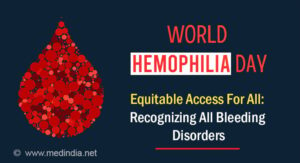Q&A with CNTR Collaborator Dr. Margaret Schwarze – Coalition for Nationwide Trauma Analysis

[ad_1]
 Margaret L. (Gretchen) Schwarze, MD, MPP, FACS
Margaret L. (Gretchen) Schwarze, MD, MPP, FACS
Affiliate Professor of Surgical procedure
Morgridge Endowed Professor of Vascular Surgical procedure
Division of Surgical procedure | College of Wisconsin College of Drugs and Public Well being
Dr. Gretchen Schwarze is a latest recipient of an R01 award from the Nationwide Institutes of Well being for her undertaking, A Randomized Scientific Trial of Situation Planning for Older Adults with Severe Harm. This work is important to tell greatest practices for affected person and family-centered look after critically injured sufferers, notably with the rising price of aged trauma sufferers presenting to U.S. trauma facilities.
Q: You have been considered one of first individuals to come back to CNTR with a analysis concept by our proposal submission type on-line. How did you hear about us, and the way did the method be just right for you?
A: I’m unsure the place I heard in regards to the CNTR on-line proposal submission type– perhaps from Karen Brasel. I do know, as a researcher, that it’s practically inconceivable to get funded for a big multisite research with out collaborators like this, so we at all times thought we would wish CNTR or one thing prefer it. I used to be simply grateful CNTR was prepared for this proposal and this undertaking.
Q: What was your preliminary request of CNTR?
A: We initially requested CNTR to assist with the recruitment of research websites primarily based on excessive quantity trauma in older adults and curiosity in communication/palliative care. CNTR did this for us, tapping into their current medical trials community, and connecting me to the American Faculty of Surgeons – Committee on Trauma’s (ACS-COT) Trauma High quality Enchancment Program (TQIP). Working with TQIP, we have been in a position to invite doubtlessly high-enrolling websites to take part.
Q: Are you able to discuss in regards to the interplay with CNTR in figuring out the websites and, later, in serving because the liaison to TQIP for the event of extra fields within the databank particular to your research?
A: Effectively, everybody was superior. I talked to CNTR workers, like Michelle Worth, and likewise with members of CNTR’s Scientific Advisory Board, like Eileen Bulger and Rosemary Kozar, so we have been actually in a position to perceive the sources and assume by among the research design challenges. Additionally they have been so nice about 1) supporting our research with their sturdy connections to ACS-COT, 2) serving to us kind by the TQIP variables that the hospitals have been already amassing to find out what we needed and the way they might work, and three) connecting us with the correct individuals at TQIP to ensure everybody was on the identical web page and to make sure that what we needed to do could be possible.
Q: Are you able to inform me a bit bit about your undertaking and the way it may shut some trauma analysis gaps? What is likely to be the implementation challenges, in case you verify the advantages of this intervention?
A: So far as analysis gaps, I believe there’s at all times room for enchancment in communication, teamwork and look after sufferers with severe sickness. We hope our intervention will help sufferers and households in a means that enables them to make clear their preferences and can assist us be sure sufferers obtain remedies that align with their objectives. We additionally hope that by getting the complete ICU crew on the identical web page about what we hope for and what we’re fearful about in a constant and systematic means, we will cut back clinician ethical misery.
We shall be performing some implementation work throughout this research, understanding the distinctive surroundings of every trauma heart and the way the limitations and facilitators to implementation might fluctuate primarily based on the setting. On condition that these are all actually giant trauma facilities, I really feel assured we’ll be taught sufficient about these challenges that we will scale this pretty properly to different facilities if we will present the intervention is efficient.
Q: What is going to CNTR be doing for the undertaking now that it’s funded?
A: CNTR will assist maintain all of the websites and individuals updated in regards to the research progress and assist us hassle shoot any issues that may come up. CNTR may even assist us establish substitute websites, if essential through the research. Additionally, by CNTR’s infrastructure, we’ll have the ability to disseminate outcomes on the finish of the research and think about different implementation methods.
Q: What would you say to investigators about your expertise with CNTR? What CNTR service did you discover most beneficial?
A: All the pieces. It was simply so nice to work with CNTR – everybody was actually fast to answer our wants, to assist us make connections, and it actually gave us confidence to see that CNTR was so obsessed with our undertaking. I don’t assume we might have gotten funded with out the help of CNTR: this infrastructure is crucial for reviewers to know that the research is possible and supported.
[ad_2]
Source_link





